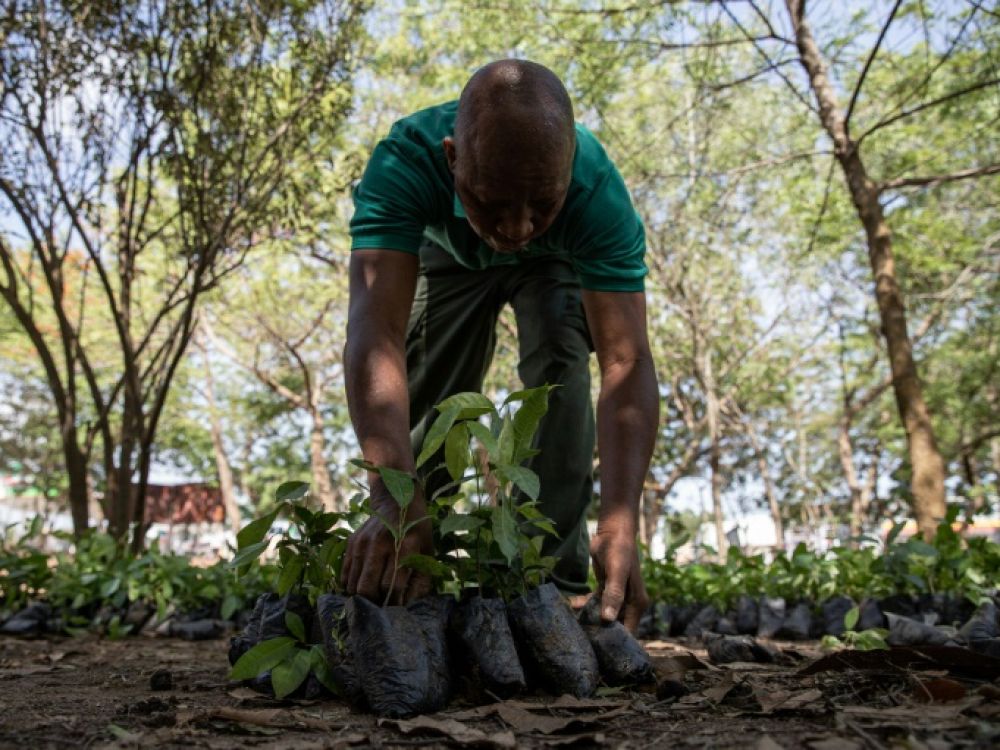World Forest Day 2023: Forests at the service of health
► The benefits of forests on human health are the focus of the celebration of World Forest Day 2023.
Afrique54.net │ Celebrated every 21 March, the International Day of Forests aims at celebrating all types of forests and trees (even those outside of forests) in order to raise awareness about their importance for life on Earth and for human societies.
The theme of International Forest Day 2023 is « Forests and Health ».
Symbolism of the International Forest’s Day
2012 saw the official launch of the « International Forest’s Day », recognised as such by the United Nations. This symbolic day is an opportunity to highlight the main services provided by forests and to set an ambitious target for halting illegal deforestation.
This day is a reminder to mankind of the need to show greater respect for forests and the incredible biodiversity that finds refuge there. This can only be achieved through reasoned and sustainable forest management. Unfortunately, good governance, where it exists, is not enough, because forests are subject to massive and destructive illegal trade.
The activities organised around this day can take the form of educational trails, awareness-raising campaigns for the general public, tree-planting campaigns and commitments by companies to harvest certified timber.
Forest contribution to human health
Many forest plants and animals produce poisons, fungicides, antibiotics and other biologically active compounds as defence mechanisms, many of which have medical uses. Compounds commonly used medicinally, such as kola nuts, caffeine, chillies and cocaine, are also found in forests.
Many Western pharmaceutical products are derived from tropical forest essences, for example quinine, derived from Cinchona spp.; cancer drugs are extracted from the Madagascar periwinkle (Catharanthus roseus); treatments for prostate gland enlargement are derived from Prunus africana; forskolin, which has various medical applications, is extracted from the root of Coleus forskohlii.
Similarly, medicines for the treatment of diabetes are derived from Dioscorea dumetorum and Harungana vismia; and several medicines based on the leaves of xerophytes from the Mesembryanthemaceae family. Some of these products have now been synthesised, but others are still harvested in the wild.
In India, around 2,500 plants are used for medicinal purposes. In fact, for over 500 million Indians, traditional medicine is the only option.
On the African continent, almost 80% of the population turn to healers, traditional practitioners and other naturopaths who use medicinal plants for their health concerns.
The economic value of traditional medicinal plants is considerable; for example, it has been reported that Prunus africana bark alone brings in US$220 million a year for the pharmaceutical industry. It should also be noted that the sale of pharmaceutical products of natural origin is worth more than 80 billion dollars a year.
Traditional healthcare systems are based on local knowledge of medicinal plants in the main tropical areas. These traditional systems are important, especially in areas not served by official health services (hospitals, clinics, etc.).
The market for traditional medicinal plants is large and growing, and is largely in the hands of women, especially for products with a low market value. There is a growing body of scientific evidence of the effectiveness of some of the most widely used traditional remedies.
LIRE AUSSI
- Xi Focus-Closeup: Shining pearls of civilization along ancient Silk Road
- South African economist hails BRICS cooperation for mutual benefit
- America’s Coercive Diplomacy and Its Harm
- Tensions in the Muna family: Barrister Akere Muna persists in his illegal activities
Medicinal plants under threat
Medicinal plants are under threat throughout the world, through mechanisms more or less similar to those described for forest foods. These threats include the slow growth of ‘good’ species, the loss of traditional mechanisms for sustainable harvesting, and competing uses for the same species, not to mention the increasing commercialisation and globalisation of the market. Certification of medicinal plants and improved forest management techniques could provide at least partial solutions.
Pharmaceutical companies are accused of taking excessive advantage of the knowledge of forest populations, given their poverty throughout the world. Problems concerning intellectual property rights, the consequences for cultural integrity, the quantification of benefits and the identification of beneficiaries are complex issues.
The Convention on Biological Diversity (CBD) aims at protecting benefit-sharing rights, but there are no adequate mechanisms in place to enforce them, particularly in many developing countries. Efforts to establish collaboration between the pharmaceutical industry and local communities in the field of bioprospecting have had mixed results.
by Afrique54.net | Eugène Messina



